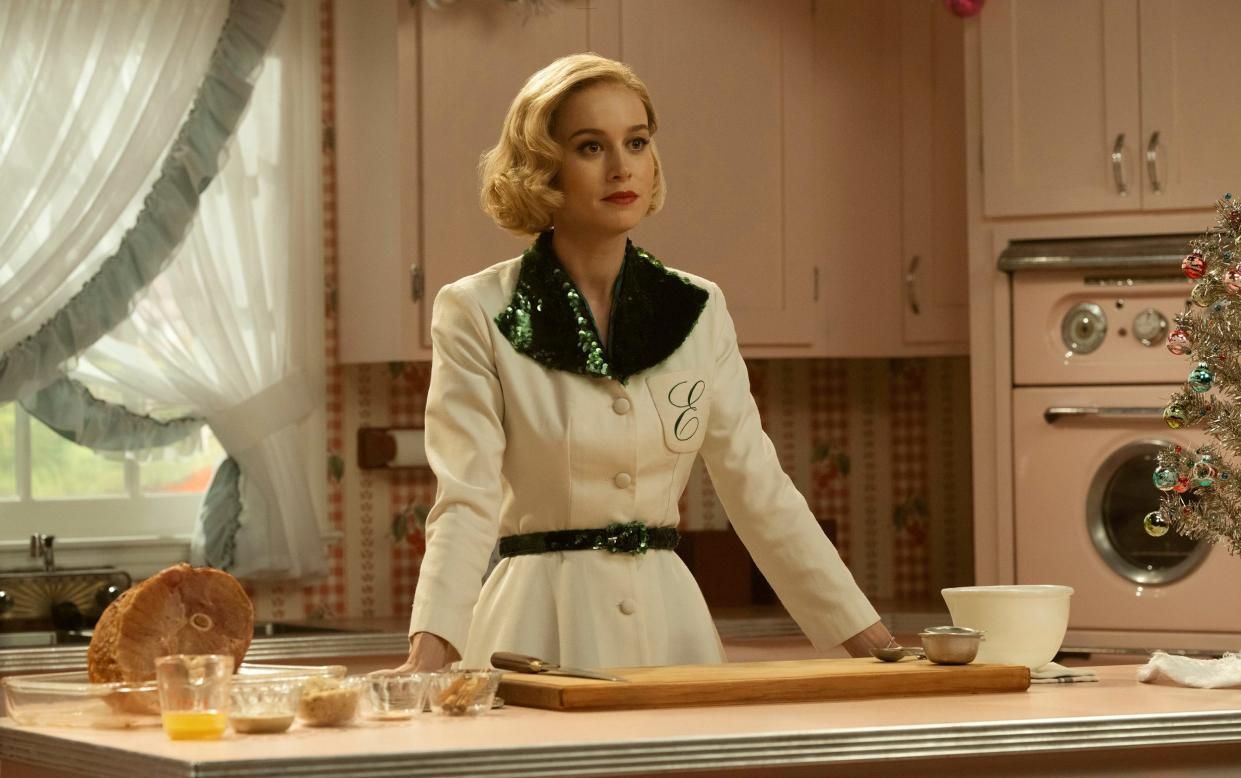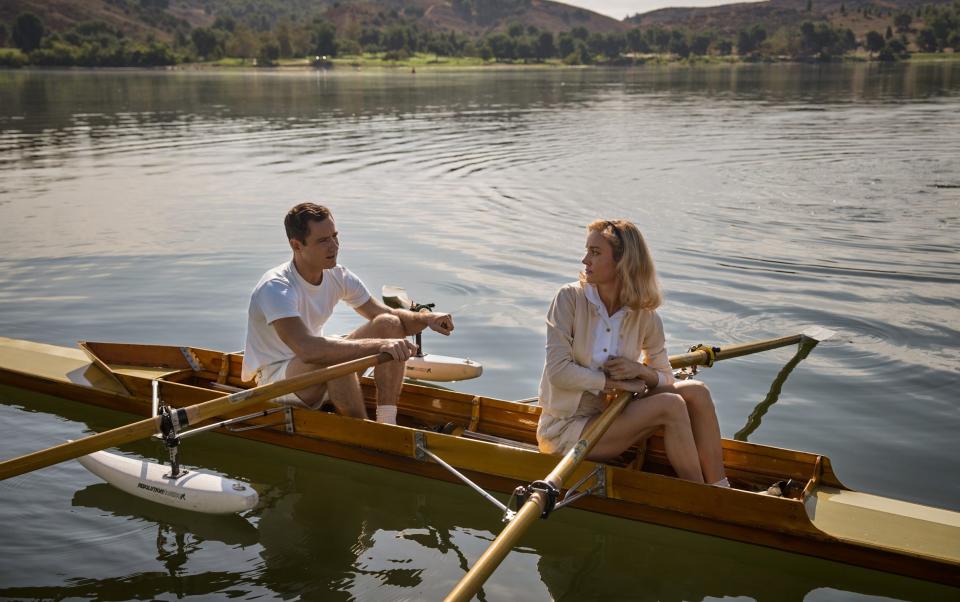Lessons in Chemistry, review: drowns a revolutionary heroine in gallons of TV-drama gloss

Bonnie Garmus’s 2022 debut novel became an extraordinary word-of-mouth hit thanks to a strikingly uncompromising protagonist. Elizabeth Zott is a visionary research chemist sidelined by mid-century sexism, who uses a TV cookery show to brew up a social revolution. Logical to a fault, she’s not discouraged by discrimination so much as baffled by it, an attitude expressed in a bone-dry deadpan throughout the novel. But alas: this eight-part adaptation of Lessons in Chemistry (Apple TV+) messes with Garmus’s winning formula.
Lee Eisenberg’s glossy adaptation is still an enjoyable watch, with its detailed Mad Men-esque period styling (and attitudes) and mouthwatering food preparation; it shares DNA with the Sarah Lancashire-starring Julia Child series, Julia. However, this Elizabeth, played by Brie Larson, has had her sharp edges sanded down. She’s no longer so ruthlessly unconventional, nor is the drama surrounding her.
When we first meet our heroine in 1960s California, she’s the star of TV programme Supper at Six. Instead of talking down to her audience of underappreciated women, she treats cooking as chemistry (teaching science alongside recipes), and inspires her viewers to embrace change in their own lives.
We then spool back seven years to see how Elizabeth’s true vocation was derailed by male scientists: her ideas are stolen, and she’s insulted, belittled and sexually assaulted. Garmus’s novel presented constant microaggressions; Eisenberg prefers simplistic, almost cartoonish misogyny, from braying colleagues demanding Elizabeth make them coffee to bosses dragooning her into entering a workplace beauty pageant.

Larson gives a characteristically intelligent and grounded performance, perhaps her best since her Oscar-winning turn in Room. She shares volcanic chemistry with Lewis Pullman, who plays her lover, and fellow genius, Calvin Evans. However, Elizabeth’s individual scientific brilliance becomes a footnote in their courtship as they lock eyes over the Bunsen burners.
Pullman is a charismatic force, even though his character has been handed some annoying new traits, including a passion for mansplaining life’s unpredictability via jazz. An awkward misfit in the book, Evans has also had a major glow-up: he takes showers in the lab so we can ogle his chiselled physique. Even their rescue dog, Six-Thirty, has been transformed into a Hollywood-handsome labradoodle.
The series retains some of Garmus’s whimsical and magical-realist elements, such as making both Six-Thirty and Elizabeth’s young child, Madeline, preternaturally gifted thinkers. Actually, Six-Thirty only has one episode to share what has become a syrupy inner monologue full of homilies, but Alice Halsey is excellent as the Matilda-esque prodigy who turns detective in order to investigate her father’s past.
There’s also a heavy-handed new subplot involving Elizabeth’s neighbour Harriet, now a black campaigner who lectures Elizabeth on her white privilege. In fact, a fiery performance from Aja Naomi King almost steals the show, despite her thinly sketched storyline – she has more revolutionary spirit than Larson.
But it’s symptomatic of a series that, unlike Supper at Six, often patronises its audience. It becomes yet another prestige period drama preaching about the bad old days, sugar-coated with pretty frocks and chipper music choices. Above all, this sweeping drama brims with emotion – not a problem in itself, but a far cry from Garmus’s droll, oddball gem. This particular experiment in adaptation misses the mark.
The first two episodes of Lessons in Chemistry are available now on Apple TV+

 Yahoo News
Yahoo News 
